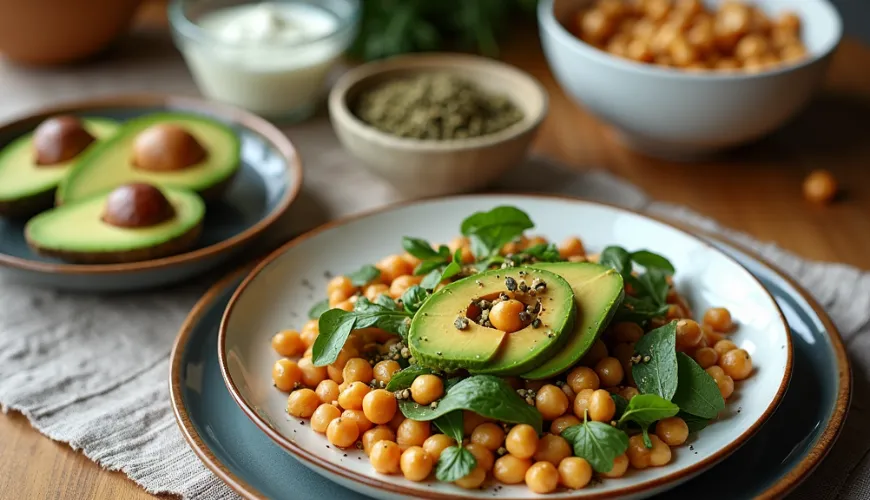
What should be the daily fat intake per kg for optimal health?

Daily fat intake is a common topic not only among athletes but also among people who are trying to live healthier, lose weight, or, conversely, gain muscle mass. The simple recommendation "fats are bad" no longer applies today – nutritional science has advanced and shows that the right amount and type of fat plays a crucial role in our health. But how much fat should we actually eat daily? And how do we calculate it per kilogram of body weight?
How much fat per day is just right?
Experts recommend that fats make up approximately 20–35% of the total daily energy intake. However, in practice, this number is difficult to work with, especially if you don't count calories or are not familiar with nutritional tables. Therefore, an approach based on body weight is often used – a certain number of grams of fat per kilogram of weight.
For most adults, 0.8 to 1.2 grams of fat per kilogram of body weight is considered a reasonable amount. This means that a person weighing 70 kg should consume roughly 56 to 84 grams of fat daily. Although it may seem like a lot, in reality, such an amount corresponds to a normal diet that includes, for example, olive oil, nuts, avocado, or fatty fish.
However, this figure is not a dogma. It depends on many factors – physical activity, age, gender, health status, goals (such as weight reduction versus muscle gain), and the types of fats you consume.
Not all fats are the same
When it comes to daily fat intake, it's not only important how much we eat but mainly what kinds of fats we serve on our plate. Fats are not all the same, and their composition makes a big difference – not just for our figure but also for the heart, brain, and overall health. Experts generally agree on three main categories.
The first are saturated fats, which are mainly found in animal foods such as butter, lard, fatty meat, or in some exotic oils like coconut and palm oil. We should monitor these fats and preferably not exceed the limit of 10% of the total daily energy intake. Then there are the so-called "good" fats – unsaturated fats. These are found in plant oils, avocados, nuts, seeds, or fish, and they are absolutely essential for us. They help lower bad cholesterol levels, support brain function, and overall benefit our bodies.
Finally, we have the third group – trans fats, the biggest scare among fats. These mainly result from industrial processing, appear in various sweets, long-lasting foods, or margarines, and we should eliminate them from the diet as much as possible, ideally to zero. Simply put – not every fat is bad, but knowing which one to choose and which to avoid is key.
In other words, it's not just about how much, but mainly about which fats we eat. An example can be two people who consume 80 grams of fat daily – one in the form of fish oil, flaxseeds, and almonds, the other from fast food and sweets. The resulting effect on the body will be completely different.
Fats as fuel, building blocks, and hormonal engine
Why are fats important at all? An often overlooked truth is that fats are not just a source of energy. They play an irreplaceable role in many vital processes. Fats are crucial for:
- hormone production – including sex hormones like estrogen and testosterone,
- nervous system health – the brain largely consists of fatty structures,
- vitamin absorption – vitamins A, D, E, and K are soluble in fats,
- protection of internal organs – fatty tissues protect organs from mechanical damage and serve as an energy reserve.
Try our natural products
A lack of fats in the diet can lead to concentration disorders, mood swings, loss of menstruation in women, or weakened immunity. A study published in The American Journal of Clinical Nutrition even links extremely low fat intake to a higher risk of depressive states.
Daily fat intake in practice
Let's imagine Lucie, a 33-year-old woman weighing 65 kg, who regularly practices yoga and runs. She would like to maintain a healthy weight and support proper hormone function. According to the formula of 1 gram of fat per kilogram of body weight, she should consume about 65 grams of fat daily.
How can this look in real life? Perhaps like this: in the morning, you have a simple but nutritious breakfast – oatmeal topped with a spoonful of peanut butter and a sprinkle of flaxseeds, providing about 10 grams of quality fat. For lunch, something more filling is needed, like a piece of baked salmon, quinoa as a source of protein and carbohydrates, and vegetables drizzled with olive oil – together about 25 grams of fat without feeling bloated.
In the evening, ideally something lighter but still nutritious – a chickpea salad with avocado pieces and a few pumpkin seeds will make your taste buds happy and add another 20 grams of fat. And when you get hungry between meals, reach for something small but nutritious, like a handful of nuts or yogurt with chia seeds, adding about 10 more grams. As a result, the fat distributes naturally throughout the day without the need to monitor or limit it extensively.
Although the diet contains quite a lot of fats, all come from quality, natural sources. And most importantly – fats are neither a friend nor an enemy, but a tool that can be used wisely.
What if I want to lose weight – should I limit fats?
One of the most common myths is that fats slow down weight loss. In reality, a moderate intake of quality fats can aid in weight reduction. Fats slow down digestion, increase the feeling of fullness, and help maintain stable blood sugar levels. Moreover, if you remove fats from your diet, you often replace them with sugars or empty calories, which can lead to the opposite effect.
In a reduction diet, it is recommended not to go below 0.6 grams of fat per kilogram of body weight. This threshold is considered minimal for maintaining hormonal balance and health. If a person trains intensively, they should retain at least 0.8 g/kg, even on a low-calorie diet.
Fats in the light of current trends
In recent years, various dietary approaches have emerged – from low-fat to keto to intuitive eating. Each approaches fats differently. In the keto diet, fats account for up to 70% of total energy intake, while in some older low-fat diets, fats are almost eliminated.
Modern nutritional science increasingly acknowledges that there is no universal solution. As nutritional expert Dr. Rhonda Patrick states: "An individual approach to nutrition is key to health – and this also applies to fats." In other words, we should not seek the perfect diet but look for a balance that works for a specific body, lifestyle, and needs.
What to take away from this?
Daily fat intake per kilogram of body weight is a practical guideline that allows for individual dietary adjustments. For most people, the range of 0.8 to 1.2 grams of fat per kg of weight applies, emphasizing quality, natural sources. It makes no sense to fear fat – nor to overdo it. Much more important is knowing what fat we eat, why we eat it, and how it makes us feel.
So next time you're adjusting your diet, remember: fat is important – and it can also be tasty. You just need to choose wisely.







